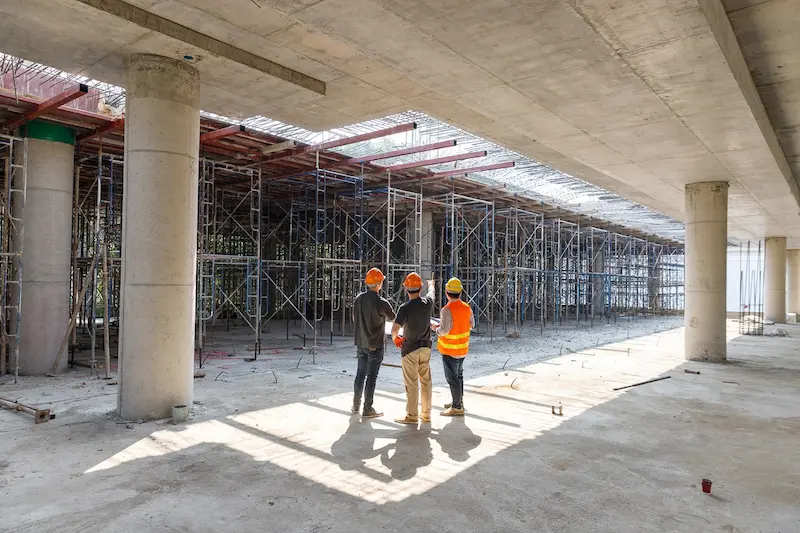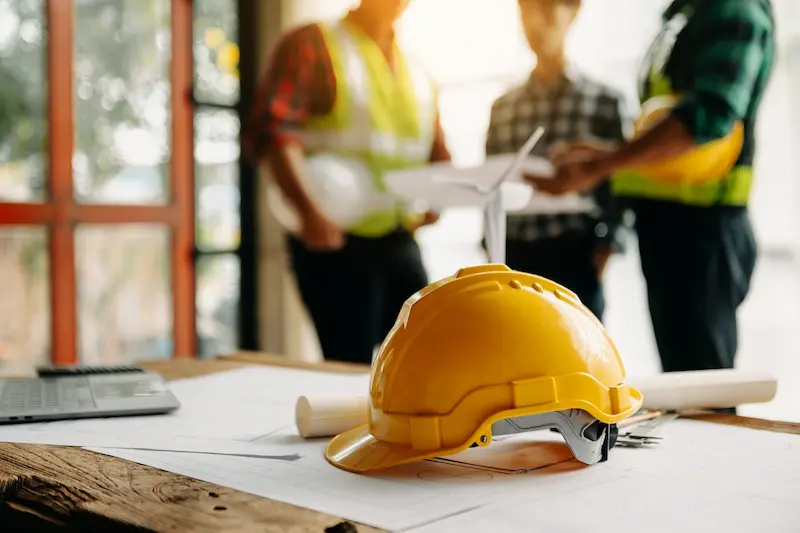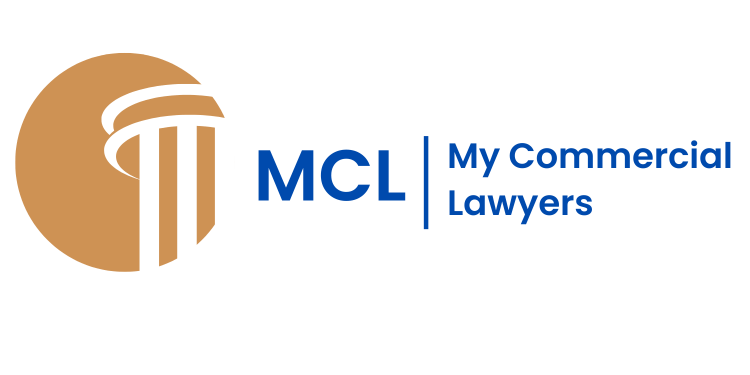What is UK Litigation? A Practical Business Overview
Litigation among UK businesses has increased significantly, with 72% of companies experiencing a rise in legal cases over the past five years. For construction firms, this trend hits particularly hard, as disputes over payment, project delays, and defective work continue to escalate. Understanding what litigation means and when to use it has become essential for construction businesses navigating today’s challenging legal environment.
At My Commercial Lawyers, we provide clear, strategic legal support throughout the litigation process. From initial case assessment to court representation, our experienced team ensures you understand your legal rights and helps you build the strongest possible case.

What is Litigation in the UK?
Litigation refers to the formal process of taking a legal dispute to court for resolution. When parties involved in a disagreement cannot resolve issues through negotiation, mediation, or arbitration, litigation stands as the final recourse. It serves as the mechanism through which a judge can issue a binding decision. The process is public, and its outcome is legally enforceable, making it a powerful tool when other methods fail.
For construction firms, litigation offers the means to enforce contracts and secure compensation for financial losses. Before formal proceedings begin, parties must follow pre-action protocols, which typically involve sending a detailed letter of claim to the other party.
English courts expect businesses to act reasonably and attempt resolution through other means before initiating court proceedings. They view litigation as a last resort. However, when disputes escalate beyond alternative methods, litigation remains a vital option for securing fair and binding resolution.
What Does a Litigator Do in the UK?
A litigation lawyer represents clients in court and manages every phase of a legal dispute. They act as both advocate and strategist, combining legal expertise with practical knowledge of court procedures to advance your case effectively.

Initial Assessment and Strategy
The process begins with your lawyer assessing whether your case has merit and identifying the best approach forward. This crucial first step determines whether proceeding to court makes practical and financial sense, helping you understand the likely outcomes and costs involved.
Investigation and Case Building
Once engaged, the litigator conducts a thorough investigation of your dispute. This involves locating and interviewing witnesses, gathering relevant documents, taking formal statements, and conducting detailed consultations with you to establish the facts. This groundwork forms the foundation of your legal strategy.
Document Preparation and Pleadings
Your lawyer drafts and files essential legal documents with the court, including:
- Claim forms and particulars of claim
- Notice of adjudication and referral notices
- Supporting evidence and statements
- Various motions and responses as the case progresses
Precision in this paperwork is crucial, as it sets out your position and the relief you’re seeking.

Case Management
Following the initial filing, the court holds a case management conference to establish how your case will proceed. Your litigator works with the court to set:
- Timelines for document disclosure
- Dates for exchanging witness statements and expert reports
- Cost budgets
- The trial date
Discovery and Evidence Management
Discovery represents one of the most critical phases of litigation. Here, both parties exchange relevant information through formal channels. Your litigator drafts information requests, responds to opposing counsel’s demands, conducts depositions to obtain sworn testimony, and meticulously reviews all evidence presented by the other side. Throughout this process, they coordinate with expert witnesses, manage court deadlines, and ensure your case progresses efficiently.
Court Advocacy and Trial
At trial, your litigator presents your arguments before the judge, challenges the opposing party’s evidence and position, and works to achieve the outcome you’re seeking.
Post-Judgment Actions
After the judge issues a decision, your lawyer advises on the next steps. Depending on the outcome, this may involve pursuing appeals or moving to enforcement proceedings to ensure the judgment is satisfied.
The entire litigation process can take anywhere from several months to years, depending on complexity. Early legal intervention and strategic planning help streamline proceedings and control costs.

Arbitration vs Litigation: Understanding the Differences
Both arbitration and litigation provide legally binding decisions for construction disputes, but they take very different approaches. Knowing these distinctions helps you choose the right path for your situation.
- Privacy and confidentiality – proceedings stay out of public view, protecting sensitive business information
- Speed and flexibility – you can agree on timelines, rules, and even choose your arbitrator
- Expert decision-makers – select an arbitrator with specific construction industry knowledge
- International enforcement – awards are often easier to enforce across borders
- Limited appeals – the decision is usually final, providing closure and preventing prolonged proceedings
While parties cover the arbitrator’s fees, the trade-off is finality, with very limited grounds to challenge an outcome through appeal.
Litigation provides:
- Full discovery rights – more extensive access to evidence and information
- Clear appeal process – you can take unfavourable decisions to higher courts
- Powerful enforcement – court judgments can be enforced directly through legal mechanisms if parties don’t comply
- Public precedent – court cases can establish legal standards that benefit the wider industry
- Transparency – proceedings are matters of public record
The trade-off comes with potential court backlogs, longer timelines, and public exposure of your dispute. Litigation follows strict Civil Procedure Rules, which provide certainty but can make the process lengthier.
The best choice between these methods depends on your specific circumstances, weighing factors like confidentiality needs, desired speed, cost considerations, and whether appeal rights matter to your case.

When is Litigation the Right Choice for Construction Disputes?
Litigation should be considered when negotiation, mediation, or arbitration fail to resolve disputes. For construction businesses, several scenarios commonly lead to court proceedings:
Common triggers include:
- Non-payment for services, materials, or labour
- Project delays caused by poor management or unforeseen conditions
- Contract breaches and termination issues
- Construction defects in design, workmanship, or materials
- Disputes over extensions and compensation
- Financial claims requiring formal enforcement
Beyond the dispute itself, certain situations make litigation the preferred route. When transparency matters or you need a public record, perhaps for reputation management, litigation’s public nature becomes an advantage.
If establishing a legal precedent is important, only court proceedings can achieve this. Cases requiring extensive evidence discovery benefit from litigation’s comprehensive disclosure process.
Litigation also becomes necessary when alternative dispute resolution genuinely fails or the other party refuses to cooperate with ADR procedures. In some cases, court proceedings provide the only effective means to enforce obligations or recover what you’re owed. When the right to appeal is crucial to protecting your interests, litigation provides clear pathways to higher courts that arbitration simply doesn’t offer.
The stakes are considerable. Research shows that litigation creates substantial impacts for construction businesses. The consequences range from reputational damage and operational disruption to negative effects on business strategy and significant financial losses. Individual cases can cost hundreds of thousands or even millions of pounds, making the decision to litigate one that requires careful consideration and expert legal guidance.
At My Commercial Lawyers, we guide construction businesses through litigation with clear communication and strategic expertise. Our experienced representation helps you achieve the best possible outcome, ensuring you’re never navigating litigation alone, from initial assessment through to resolution. Contact us for tailored specialist support from our expert team.
